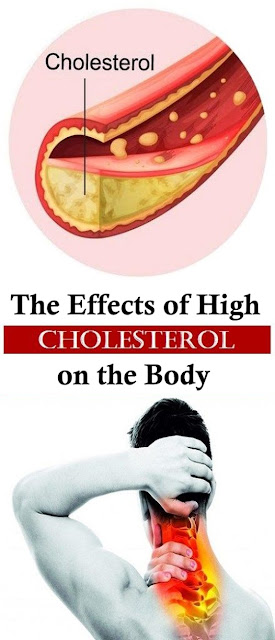Cholesterol is a type of fat that is found in the body and is essential for the proper functioning of cells. However, too much cholesterol in the blood can lead to a number of health problems. In this article, we will explore the effects of cholesterol on the body and ways to maintain healthy cholesterol levels.
What is Cholesterol?
Cholesterol is a type of fat that is produced by the liver and is also found in some foods. It is an essential component of cell membranes and plays a crucial role in the synthesis of hormones, vitamin D, and bile acids. Cholesterol is transported in the blood by two types of lipoproteins: low-density lipoprotein (LDL) and high-density lipoprotein (HDL).

Cholesterol comes in two forms:
Low-density lipoprotein (LDL) is the “bad,” unhealthy kind of cholesterol. LDL cholesterol can build up in your arteries and form fatty, waxy deposits called plaques.
High-density lipoprotein (HDL) is the “good,” healthy kind of cholesterol. It transports excess cholesterol out of your arteries to your liver, which removes it from your body.
Cholesterol itself isn’t bad. Your body needs some cholesterol to make hormones, vitamin D, and digestive fluids. Cholesterol also helps your organs function properly.
Yet having too much LDL cholesterol can be a problem. High LDL cholesterol over time can damage your arteries, contribute to heart disease, and increase your risk for a stroke. Getting your cholesterol checked at regular doctor visits and lowering your heart disease risk with diet, exercise, lifestyle changes, and medication can help decrease complications associated with heart disease and improve quality of life.
Effects of High Cholesterol
High levels of LDL cholesterol in the blood can lead to the buildup of plaque in the arteries, a condition known as atherosclerosis. This buildup can cause the arteries to become narrow and stiff, reducing blood flow to vital organs such as the heart, brain, and kidneys. If the blood supply to these organs is restricted, it can lead to serious health problems such as heart attack, stroke, and kidney failure.
Another effect of high cholesterol is the formation of gallstones. Cholesterol is a major component of gallstones, which are hard, pebble-like deposits that form in the gallbladder. These stones can cause severe pain, nausea, and vomiting.
High levels of cholesterol can also lead to fatty deposits in the liver, a condition known as nonalcoholic fatty liver disease (NAFLD). Over time, this can lead to liver damage, cirrhosis, and liver failure.
Ways to Maintain Healthy Cholesterol Levels
Maintaining healthy cholesterol levels is crucial for overall health and wellbeing. Here are some ways to maintain healthy cholesterol levels:
Eat a healthy diet: A diet rich in fruits, vegetables, whole grains, lean protein, and healthy fats can help lower LDL cholesterol levels.
Exercise regularly: Regular physical activity can help increase HDL cholesterol levels, which can help reduce the risk of heart disease.
Maintain a healthy weight: Being overweight or obese can increase LDL cholesterol levels and decrease HDL cholesterol levels. Maintaining a healthy weight can help improve cholesterol levels.
Avoid smoking: Smoking can damage the walls of the arteries, making it easier for plaque to build up.
Limit alcohol consumption: Drinking too much alcohol can raise triglyceride levels and increase the risk of heart disease.
Conclusion
Cholesterol is an essential component of the body but high levels of cholesterol can lead to a number of health problems. Maintaining healthy cholesterol levels is crucial for overall health and wellbeing. Eating a healthy diet, exercising regularly, maintaining a healthy weight, avoiding smoking, and limiting alcohol consumption are all important ways to maintain healthy cholesterol levels. If you are concerned about your cholesterol levels, speak to your healthcare provider.
